Blog
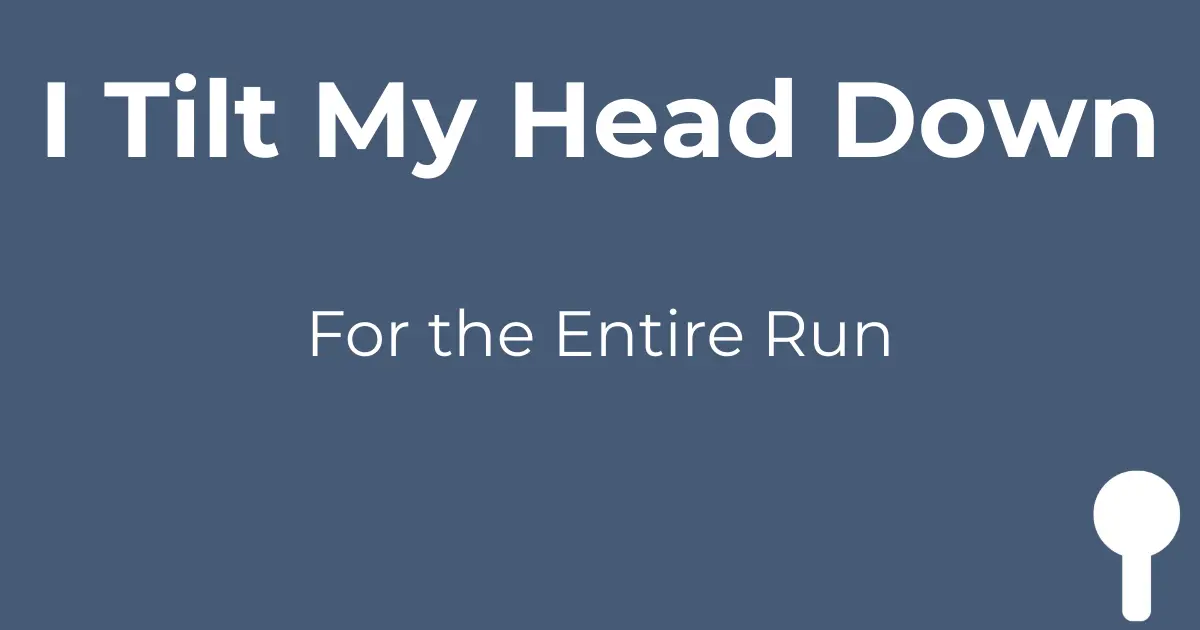
I Run With My Head Down for the Entire Jog. The Light Is Too Much.
I'm not looking directly at the sun. The brightness alone drops me from 5 to 2 and costs me 1–3 hours in bed before my day even starts.
See Full Post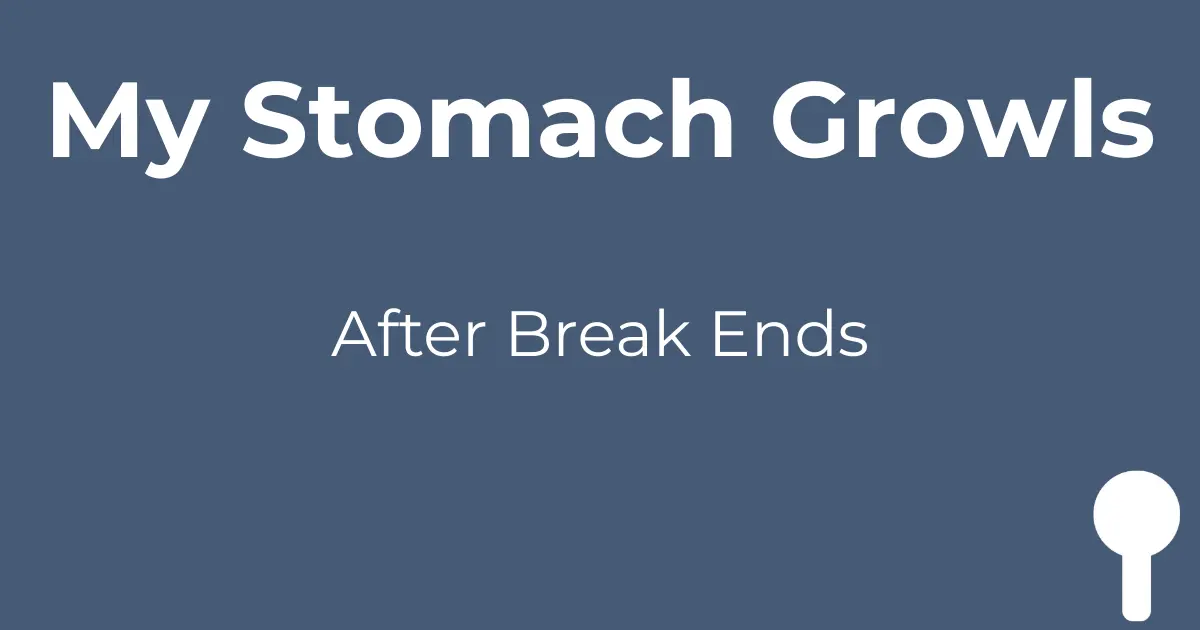
Why I Forget to Eat at Work as an Autistic Adult in Burnout
A couple minutes after my break ends, my stomach is growling hard. I wasn't hungry during the break—so why now?
See Full Post
Why I Shower Every Other Day During Autistic Burnout
This isn't something people talk about. Morning showers cost me 2-3 energy before I even start my day.
See Full Post
Why I Switched to a Flip Phone as an Autistic Adult in Burnout
My energy baseline is at a 3. To-do apps cost 2-4 daily. That leaves nothing before I've done anything else.
See Full Post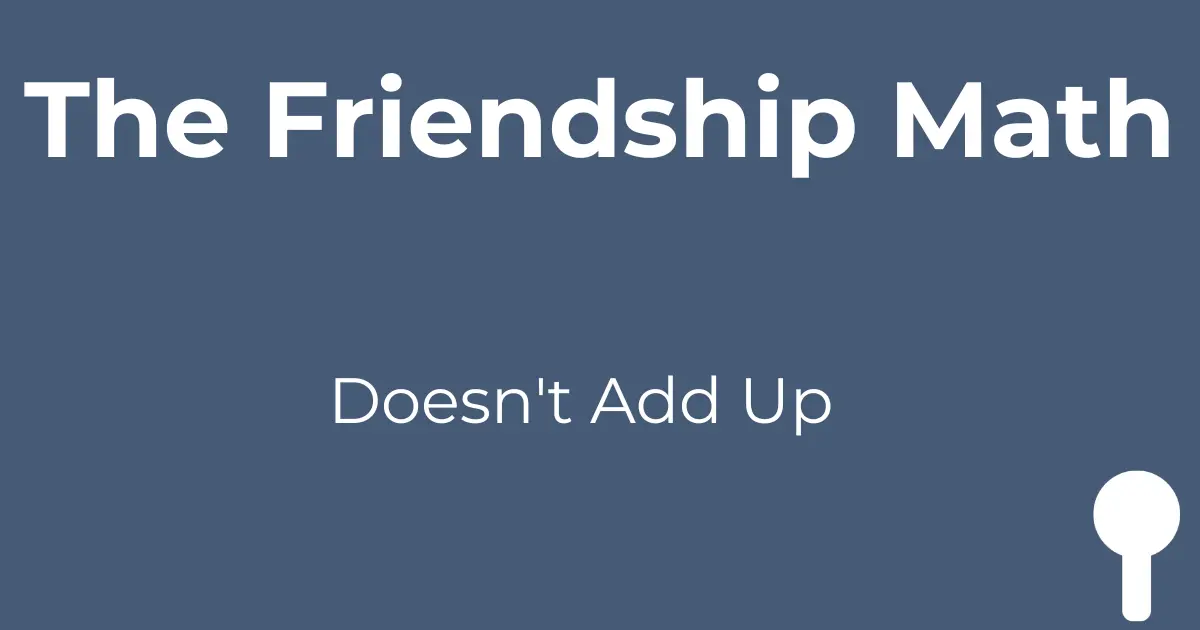
The Friendship Math Doesn't Work for Me as an Autistic Adult
Having so many 'friends' cost me most of my energy. I now prefer a couple of genuine ones over many who only found my people-pleasing appealing.
See Full Post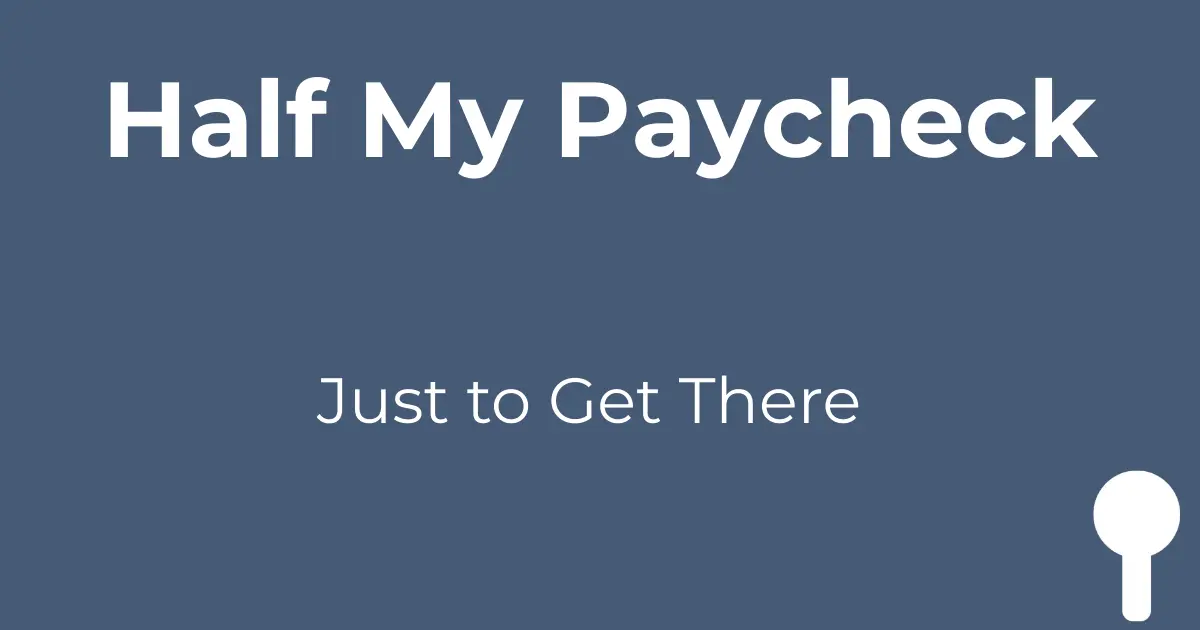
What Being Poor Costs Me in Energy as an Autistic Adult
I make $2,100 a month after taxes. The constant recalculating of whether I can afford essentials drains me before I even clock in.
See Full Post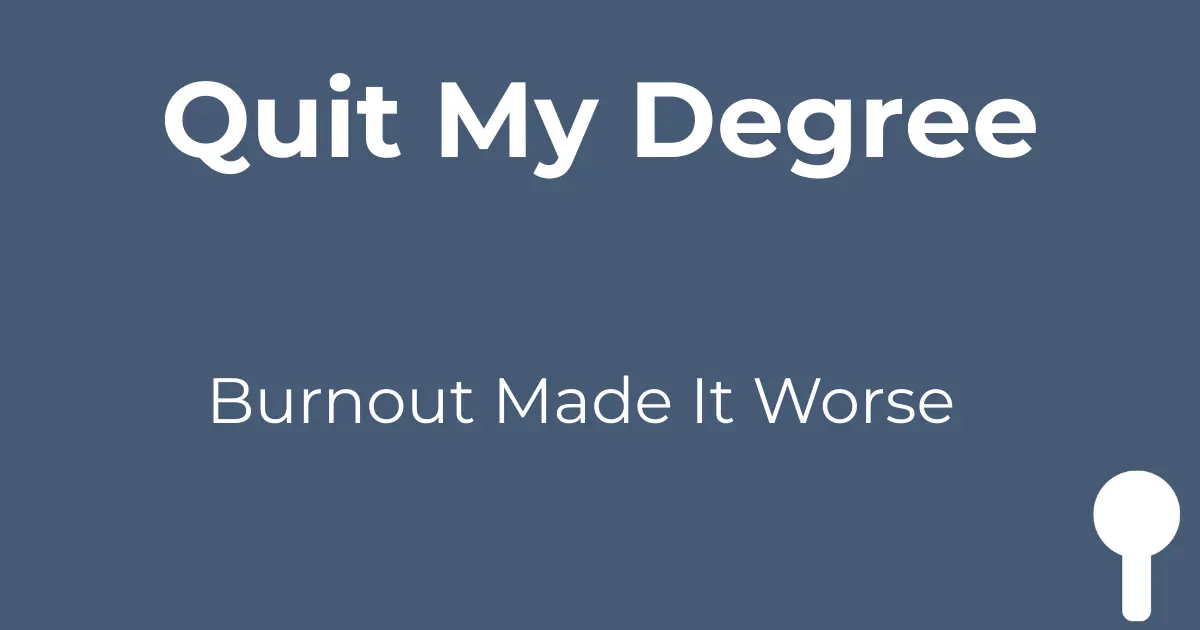
I Quit My Software Engineering Degree Because of Autistic Burnout
I thought pursuing a software engineering degree—my special interest—would help me recover from burnout. It drained me 7 energy daily and extended my recovery. So I quit and started building Spoons instead.
See Full Post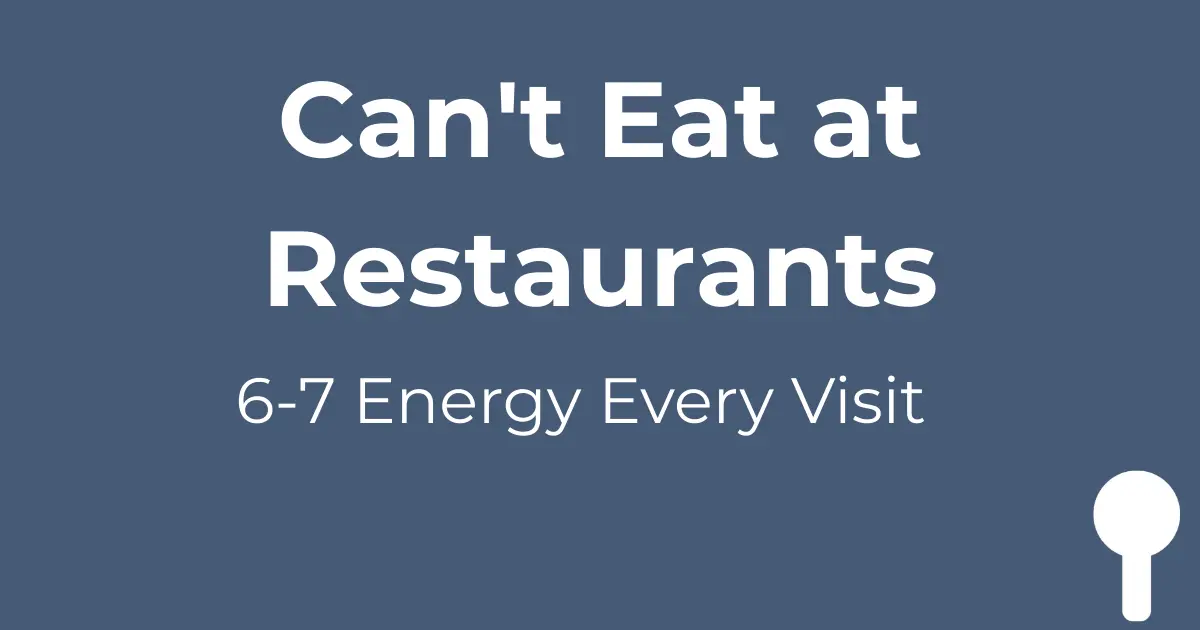
It's Not the Food: What Family Restaurants Actually Cost Me as an Autistic Adult
I say 'I'm doing pretty good.' Mom says I'm not talking much. Grandparents ask if something's wrong. The loop starts. 6–7 energy gone.
See Full Post
Autism and Why I Can’t “Just Get a Better Job”
I can’t “just get a better job,” and it still costs me a ton of energy just to go to work. I start around 6/10 and I’m at 2 or 3 by the time my shift is over.
See Full Post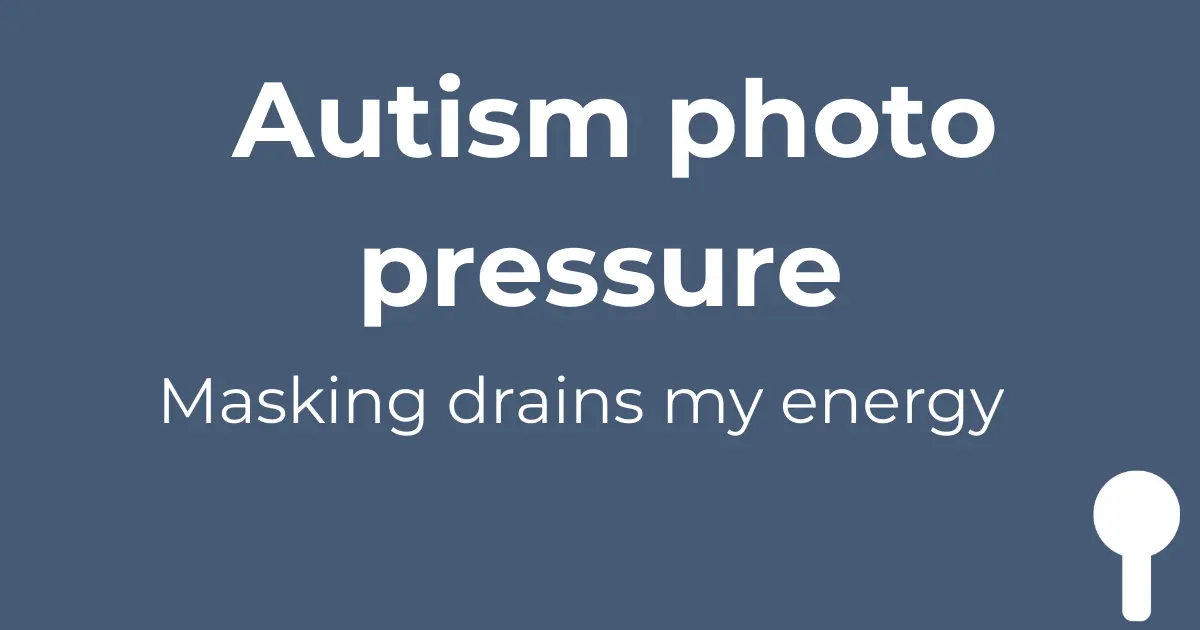
The Energy Cost of Smiling for Photos: Autism Masking Exhaustion
I smiled for my permit photo. Everyone laughed. Energy dropped from 6 to 2. Stayed at 3 for days. After, I don't smile at anything. Not even things I look forward to.
See Full Post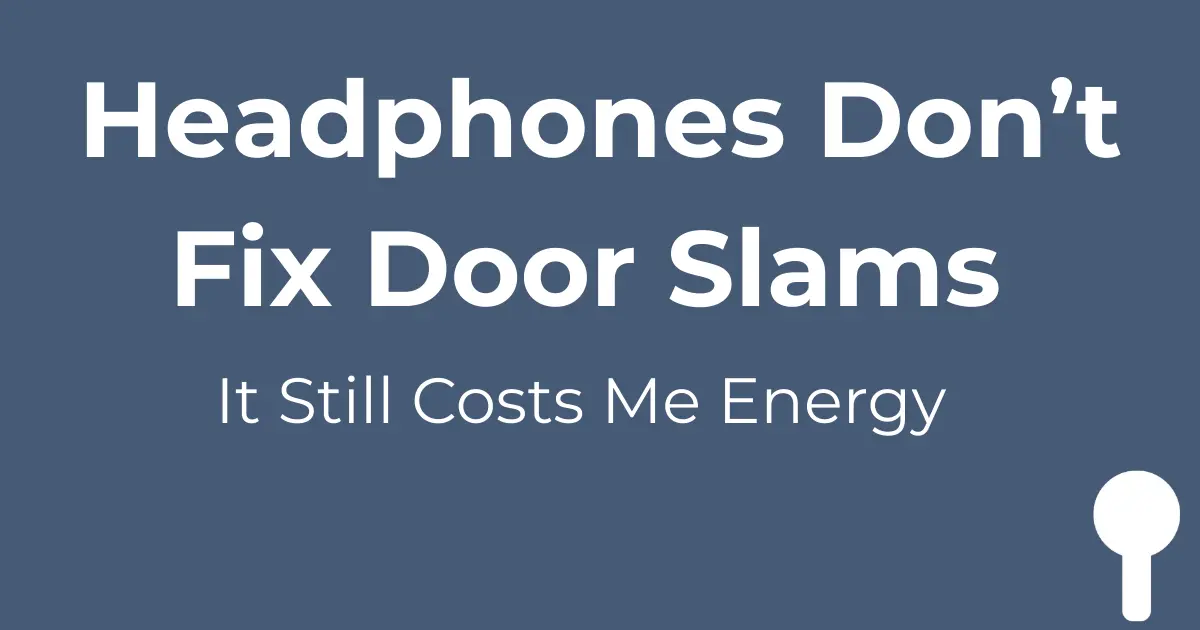
Headphones don’t fix abrupt noise for me (Autistic Adult)
I lose 3 energy from door slams even with headphones on. The volume isn’t the problem. The unpredictability is.
See Full Post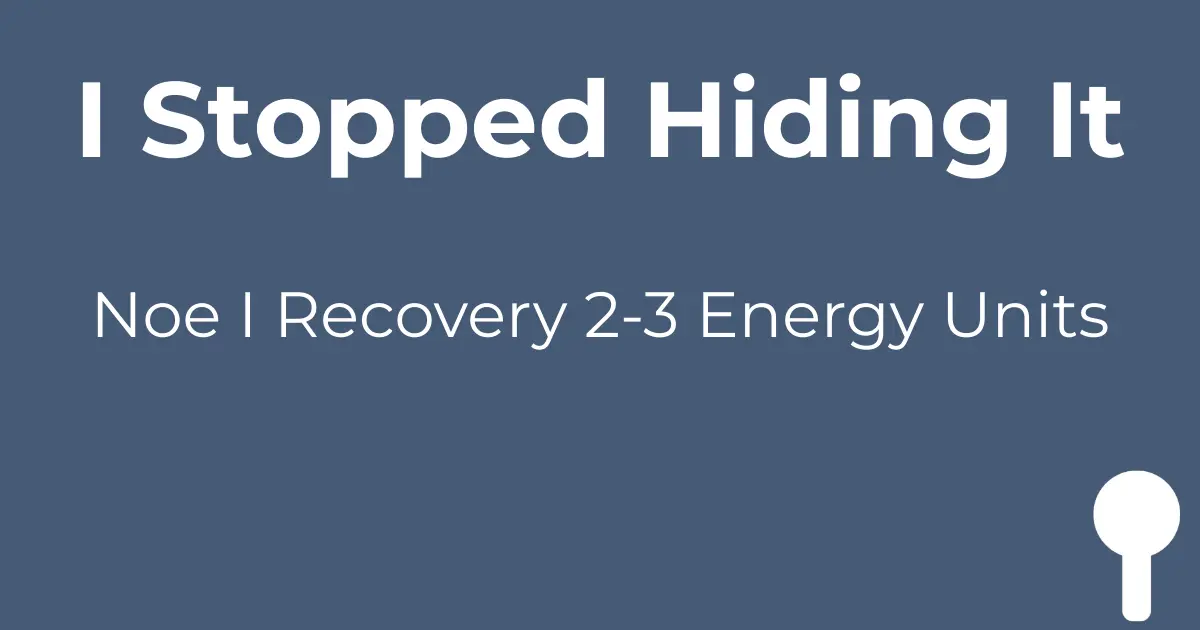
I Stopped Hiding My Stimming. It's the Only Thing That Helps Me Recover.
I bite my nails. I stand on tippy-toes at my desk. I swipe through my smartwatch over and over. All three help me recover 2-3 energy. But a sudden noise brings it right back where it started.
See Full Post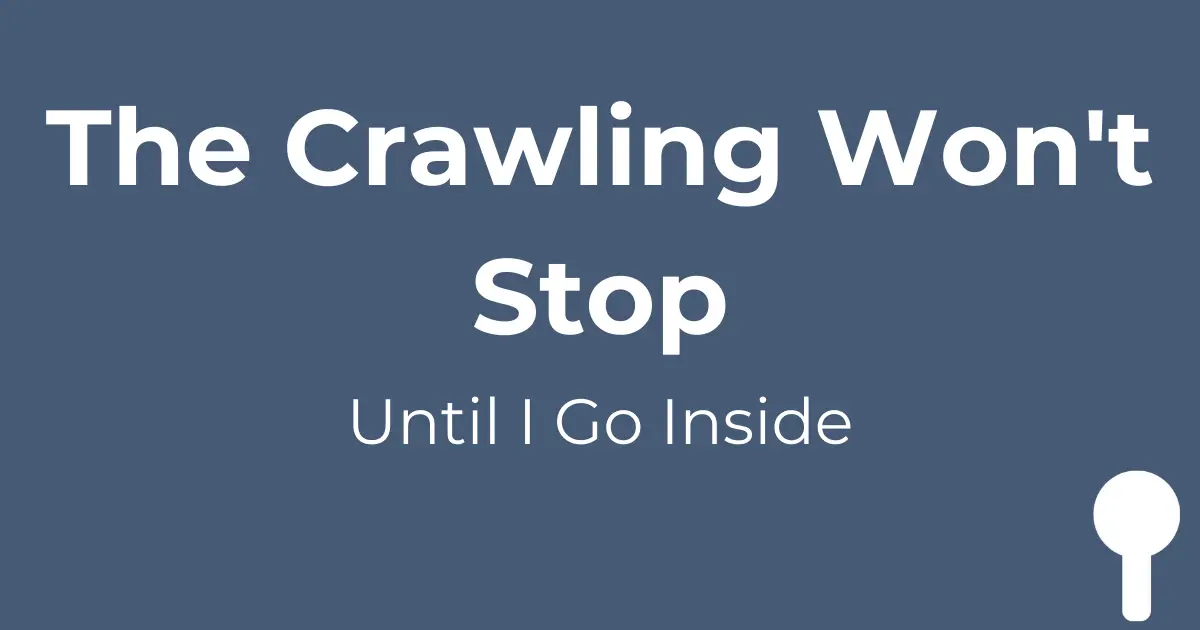
The Crawling Sensation Won't Stop Until I Go Inside
Running outside costs me 5-7 energy. The crawling sensation on my skin once I start sweating doesn't stop until I go inside. I rub my shoulder every 15-40 seconds. It doesn't stop.
See Full Post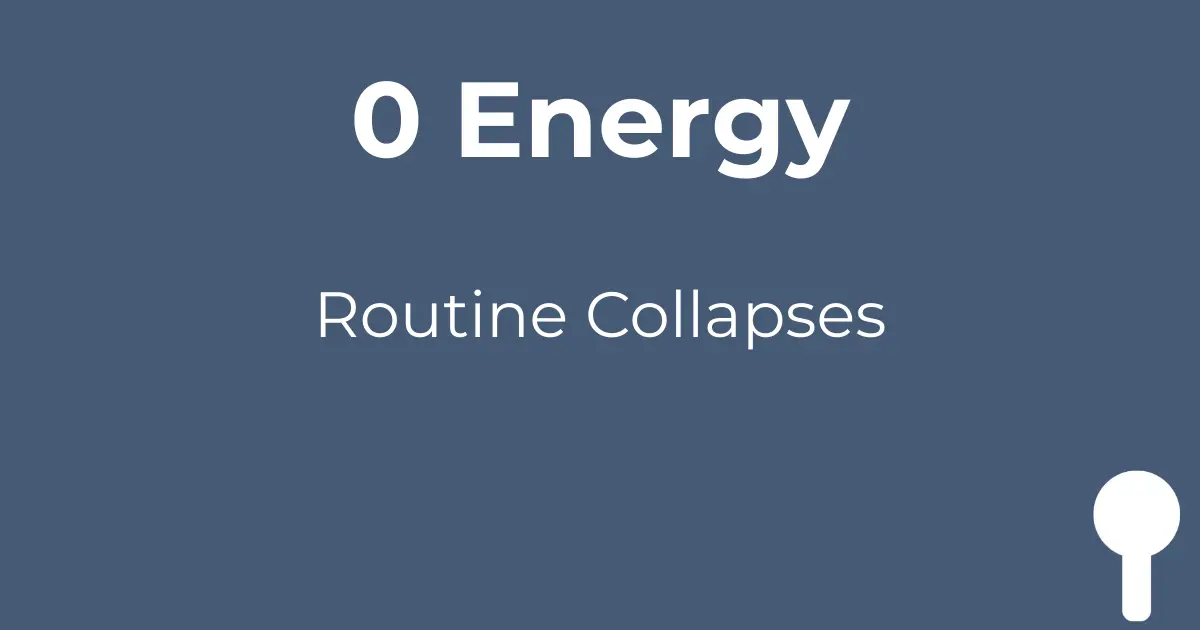
I Check My To-Do List 6 Times and Still Forget What I Went Downstairs For
I built a routine to protect me on hard days—but hard days are when I can’t execute it. At low energy I loop my to-do list 3–6 times per task and still forget. One interruption and my whole day collapses.
See Full Post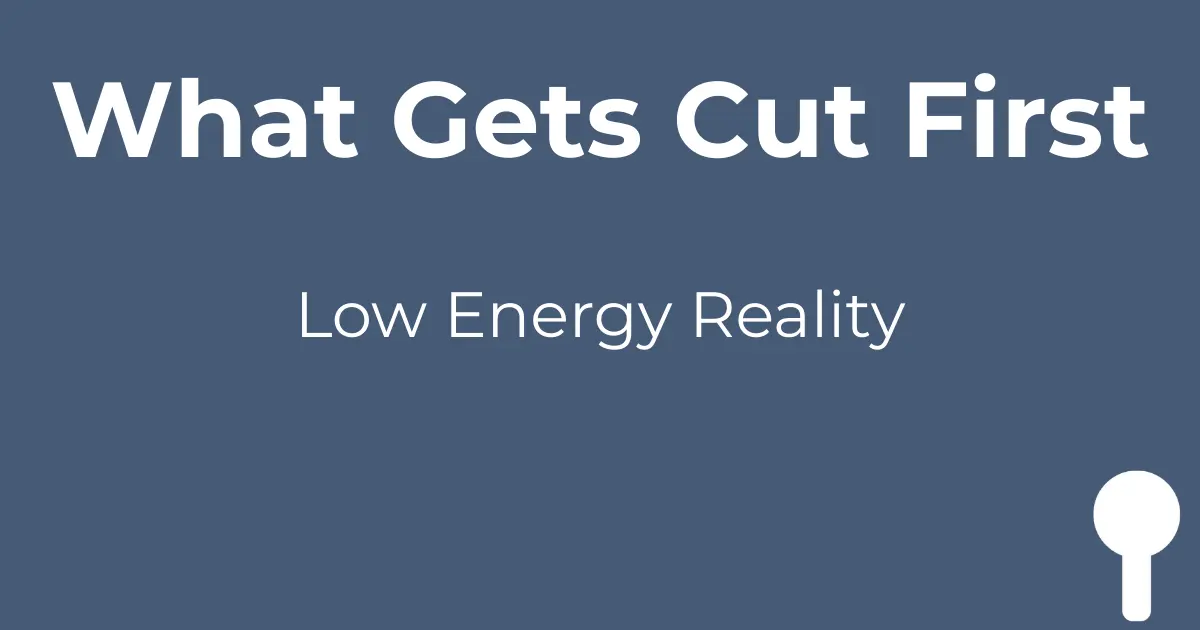
Cleaning Stops. Friends Get Silence. The Same Cuts, Every Time.
When I'm low on energy, certain things disappear entirely. Not reduced. Not half-done. Gone. The same cuts, the same order, every time.
See Full Post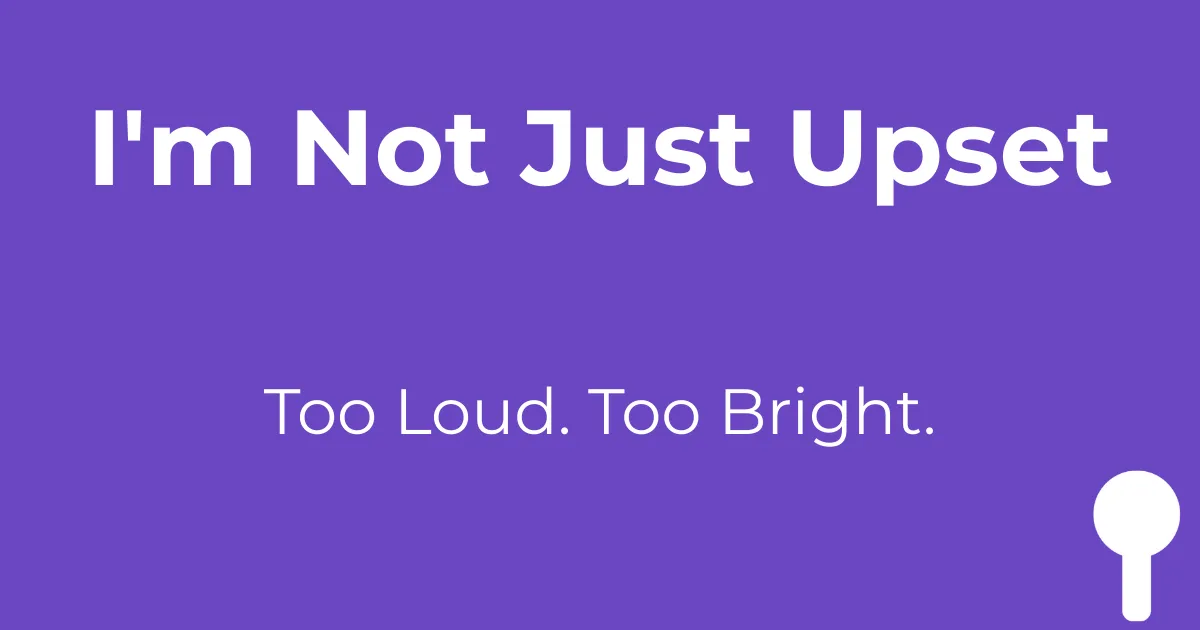
What People Misunderstand About Autistic Shutdown (Adult)
People assume I'm just upset. They don't realize the environment is too loud and too bright—and my sensory tolerance has been pushed to its limit. At 2-3 energy, I can't respond at all. The meltdown lasts the rest of the day.
See Full Post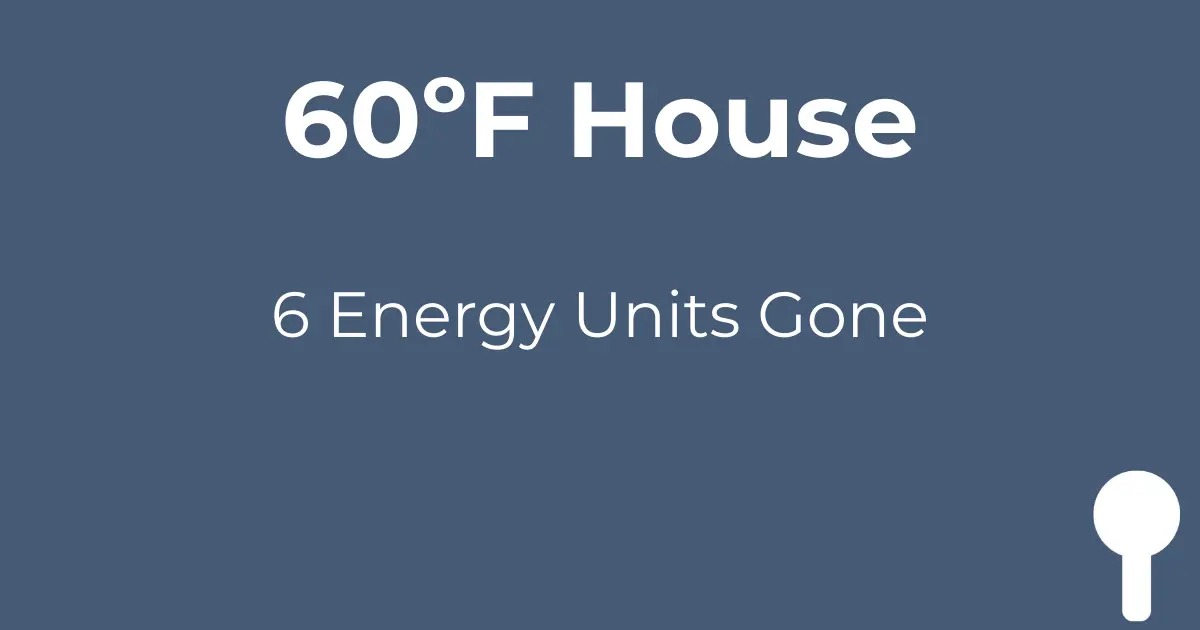
My Hands Go Numb Before Work Starts. My Shift Hasn't Even Begun.
My family leaves the thermostat at 60°F. By the time I leave for work, cold hands have already cost me 6 energy—and my shift hasn't even started.
See Full Post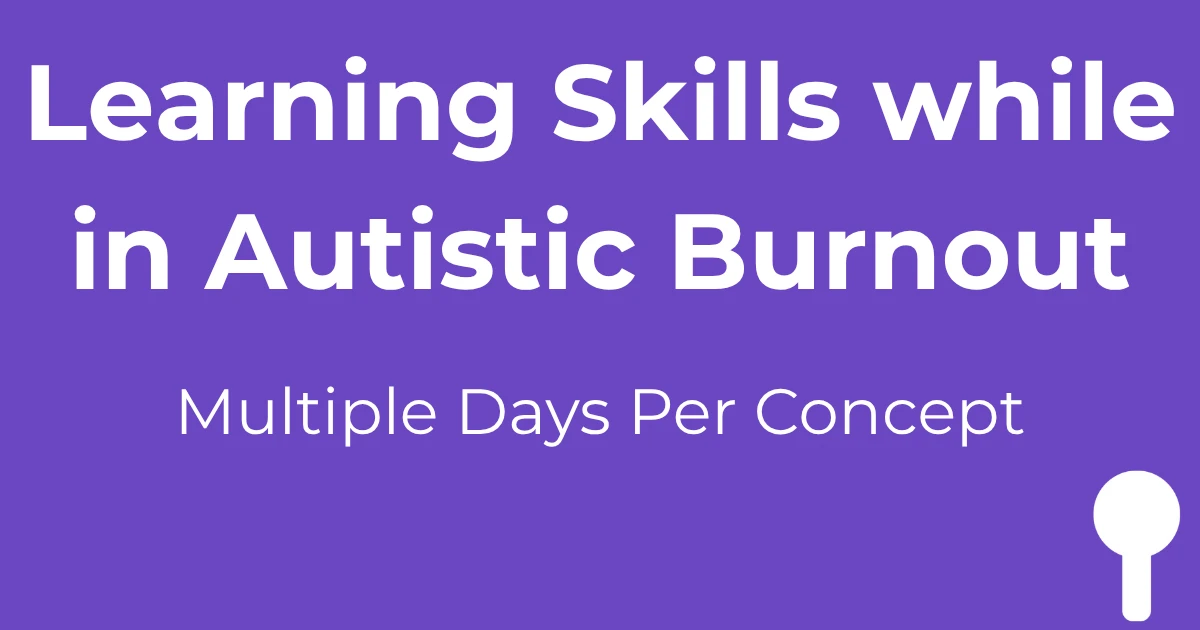
Arrays: Monday Learned, Tuesday Forgot, Thursday Barely Usable
Arrays: learned Monday, forgot Tuesday, reviewed Wednesday, barely usable Thursday. I code 1–2 hours max, then don't touch my computer for days. I skip cleaning for weeks just to protect that small window of energy.
See Full Post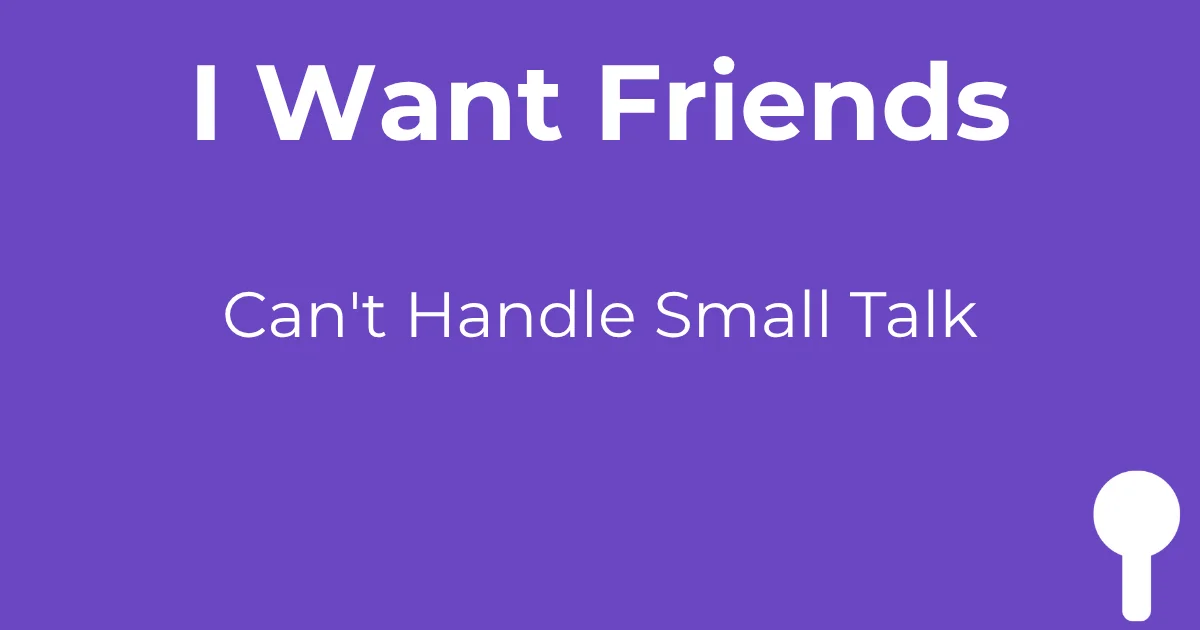
I Want Friends. But 90 Minutes of Small Talk Costs Me 48 Hours.
I wanted to visit my friends. Walk in the park. Watch a movie. But the masking—monitoring expressions, forcing eye contact—burns through my energy before we get to actual conversation. A 90-minute hangout costs me 48 hours.
See Full Post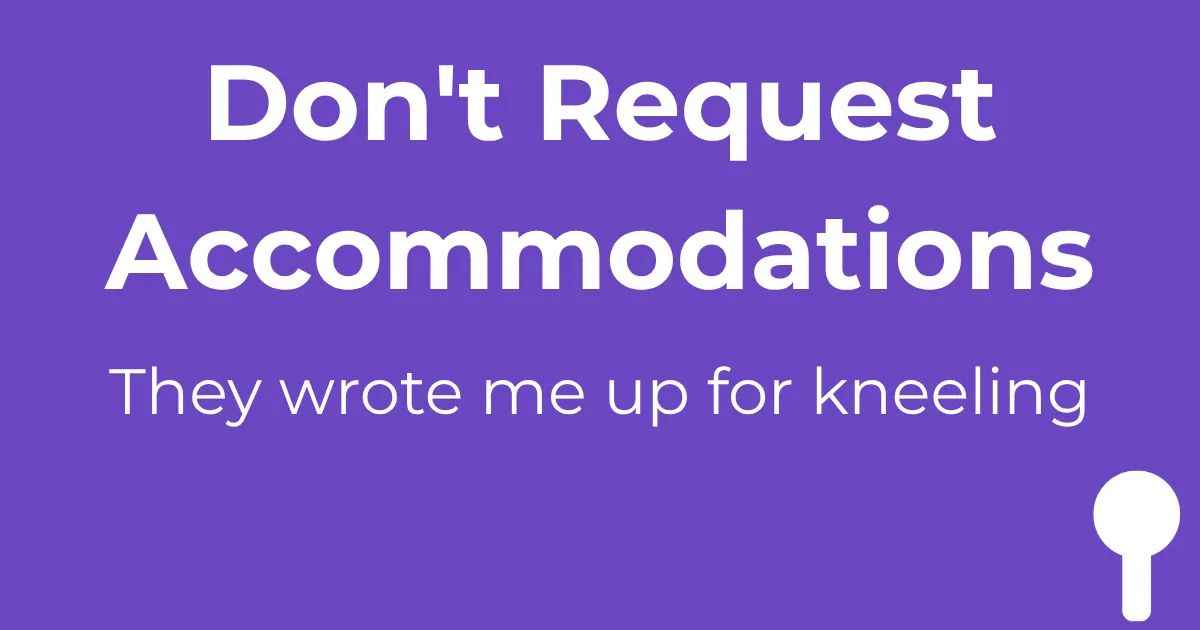
Why I Don't Request Accommodations as an Autistic Warehouse Worker
I wanted one accommodation: work alone, no small talk. Here’s why I didn’t request it—and what happened when I tried anyway.
See Full Post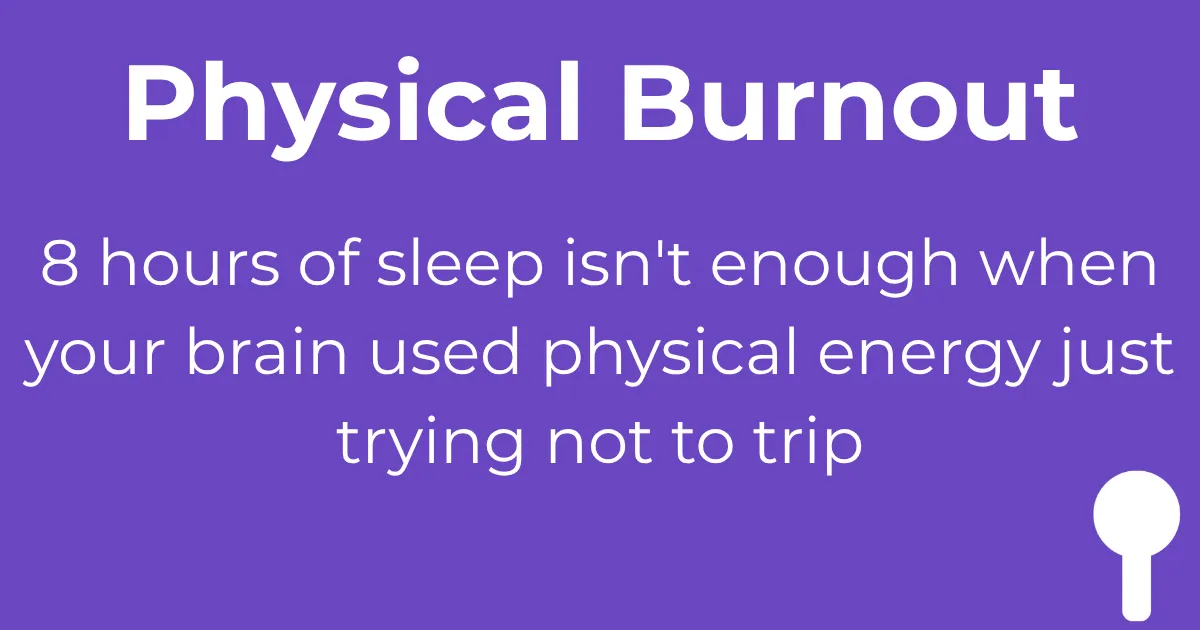
Physical Symptoms Of Autistic Burnout (What it does to my body)
My legs give out during runs. I trip more at work. 8 hours of sleep barely touches the deficit. The physical symptoms nobody warned me about: coordination drops, reaction time slows, mistakes increase. Recovery takes days, not one night.
See Full Post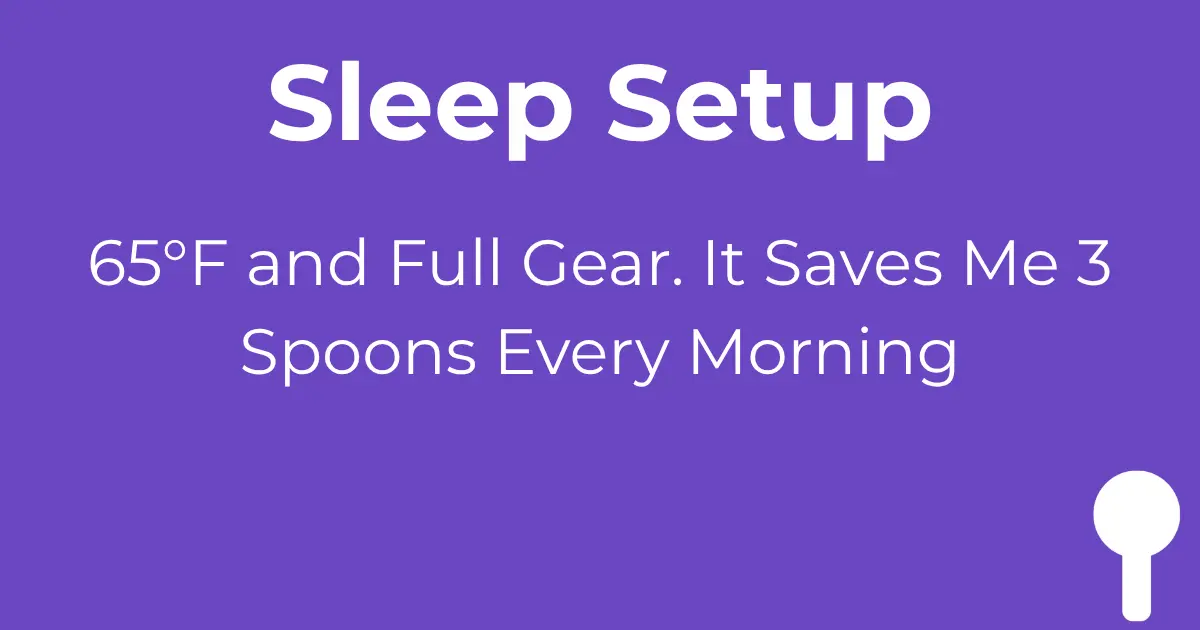
My Sleep Setup Isn't Excessive. It's the Only Way I Function.
65°F. Sleep mask. White noise machine. Weighted blanket. 30-minute wind-down with rain sounds. My family says it's 'too much.' Work destroys me. Running drains me. Sleep has to compensate for all of it. Without my setup, I need 30 extra minutes and start the day 3+ points lower.
See Full Post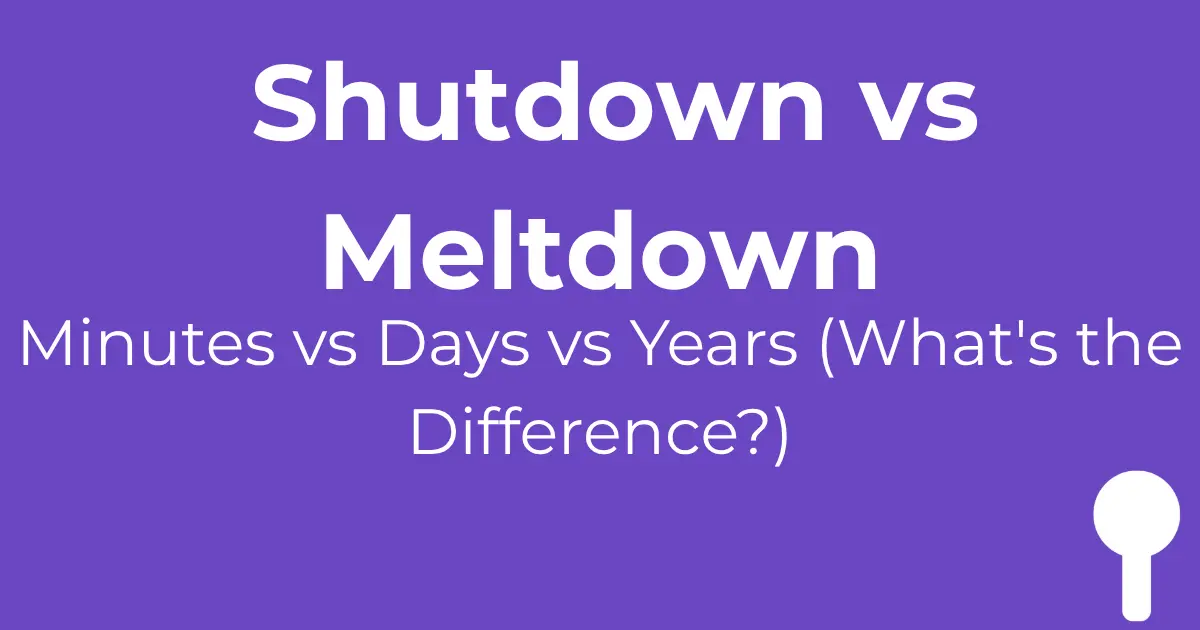
Shutdown vs. Meltdown vs. Burnout: How I Tell Them Apart
Meltdown: crying in the bathroom at family dinner. Minutes. Shutdown: couldn't talk, stayed in bed, too exhausted to eat. Days. Burnout: 5+ years—masking harder, social skills degraded, everything feels harder. Timeline is the difference.
See Full Post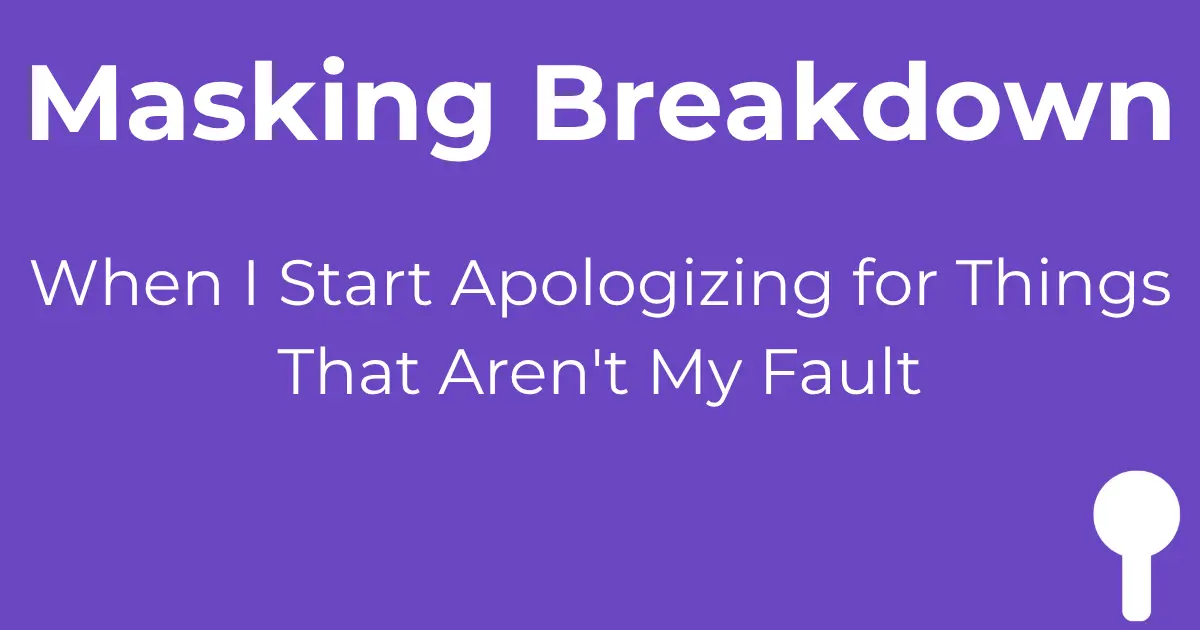
Apologizing For Nothing Is My Autistic Burnout Warning Sign
I'm sorry I don't talk to Grandad as often.' I'm in burnout, minimizing small talk. Mom criticizes me harshly. I apologize anyway to avoid conflict. When I start apologizing for things that aren't my fault, I know I'm about to break.
See Full Post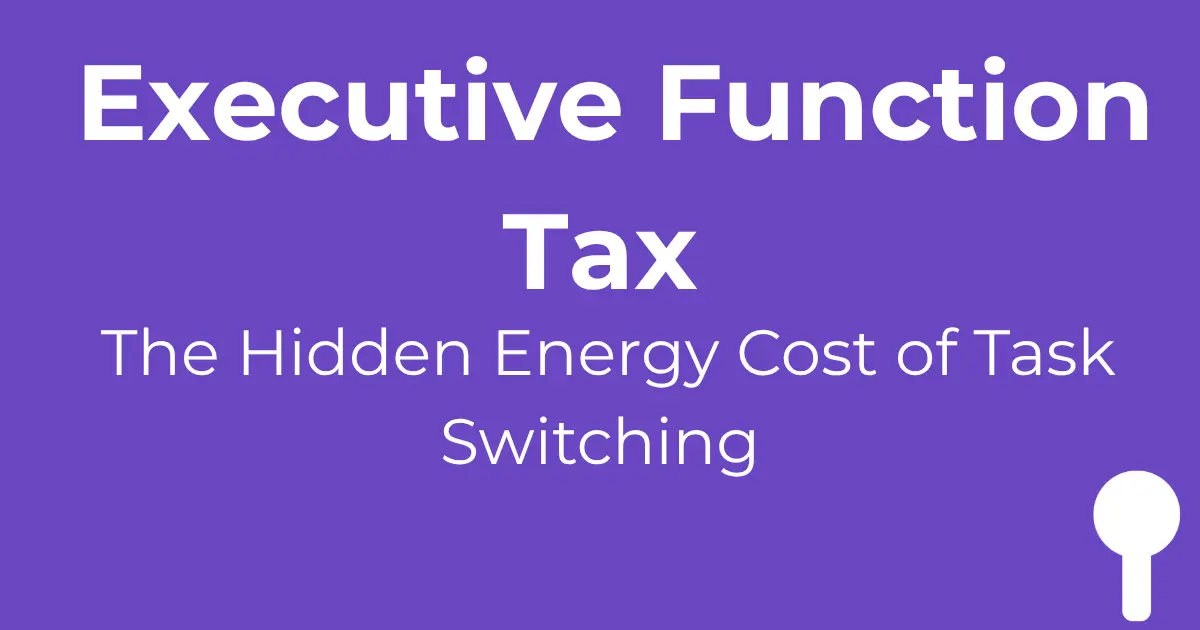
Half My Energy Is Gone Before I Even Start the Task
Before I run, I have to text my mom, find my heart rate monitor, and plan timing. That’s 4 energy gone before I start. Task switching is the part that empties me.
See Full Post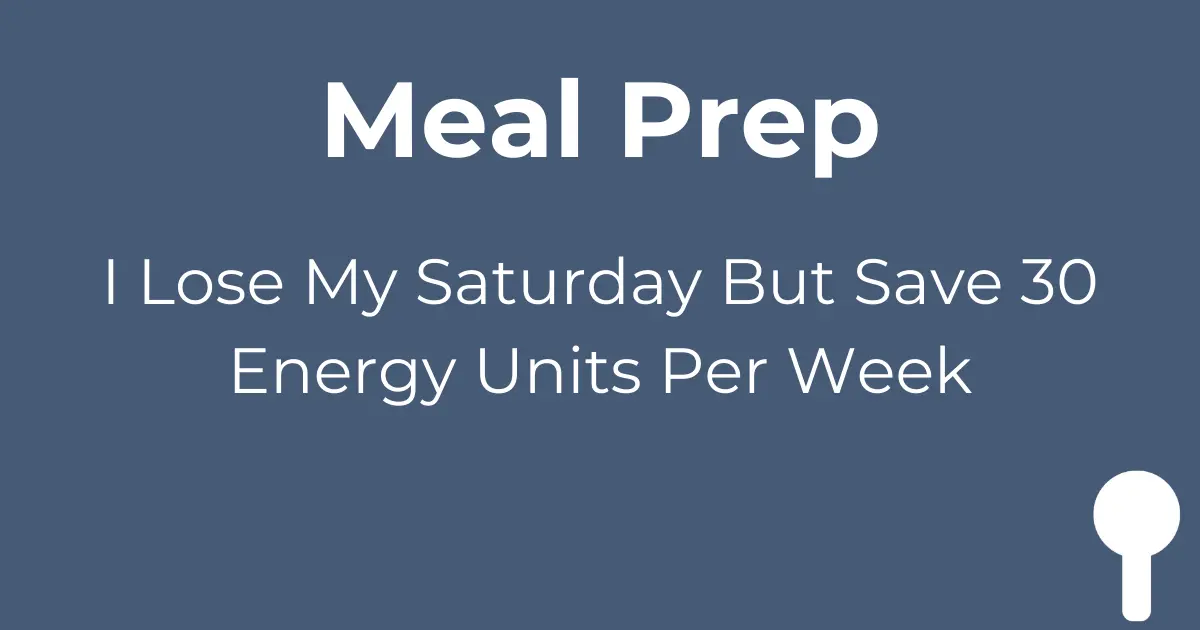
Saturday Is Survival Prep, Not a Day Off
I spend 3 hours on Saturday making 16 sandwiches, 4 batches of potatoes, and 4 batches of chicken. Costs 6 energy units. Without it, each work day costs 9 energy units. The math: 6 energy units saves me 30.
See Full Post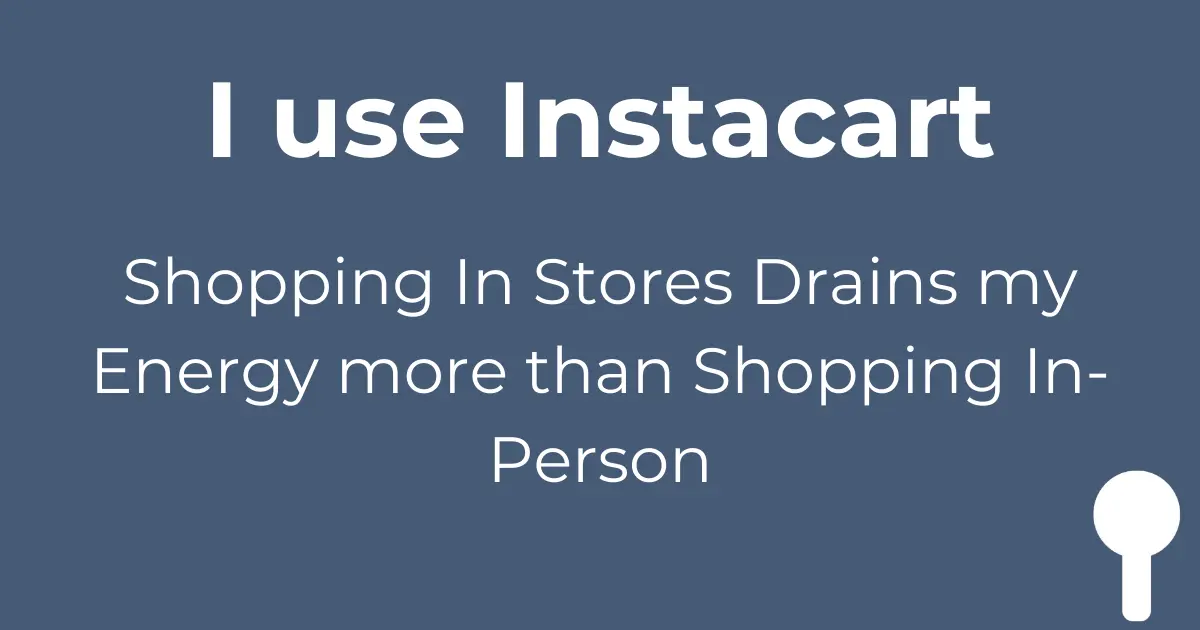
Grocery Stores Destroy Me. Instacart Isn't Convenience—It's Survival.
Grocery stores cost me 5 energy units. Loud intercoms, navigating crowds, workers forcing small talk. Even with Theraspecs and headphones at 8 AM, still 2-3 energy. Instacart costs 0 energy units. Not convenience—accommodation.
See Full Post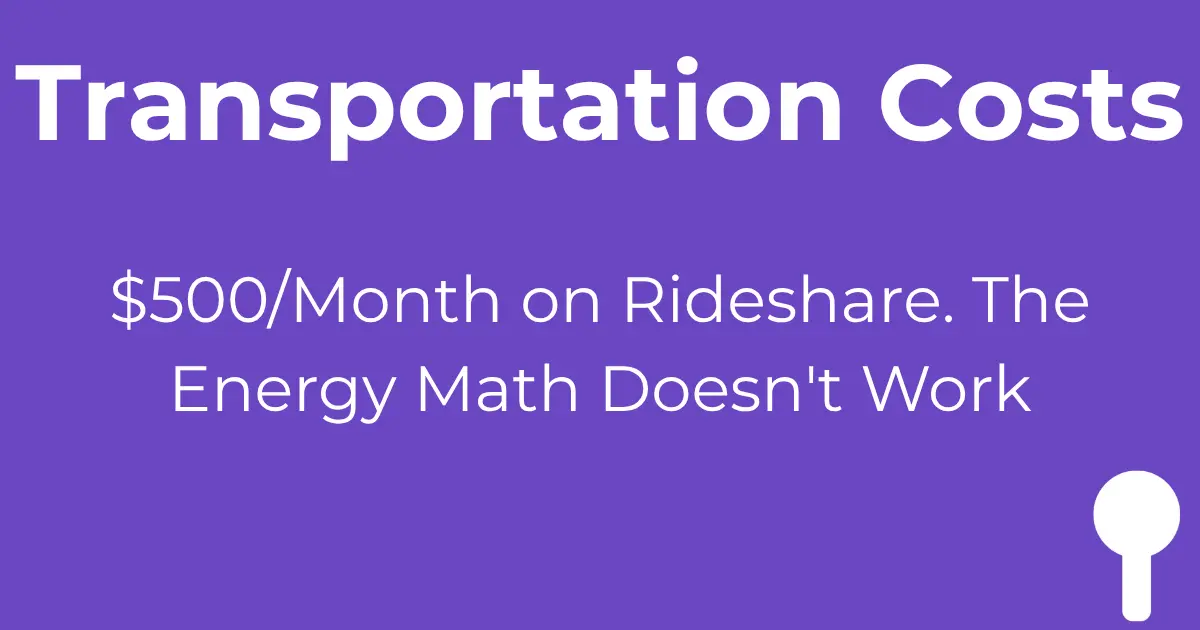
I Spend $500/Month on Uber for Work. That's 1/4 of My Income.
I don't drive. So I spend $500/month on rideshare for 3 days of work. That's 1/4 of my income. Driver small talk drains 3-4 energy before my shift starts. The financial and energy math doesn't work.
See Full Post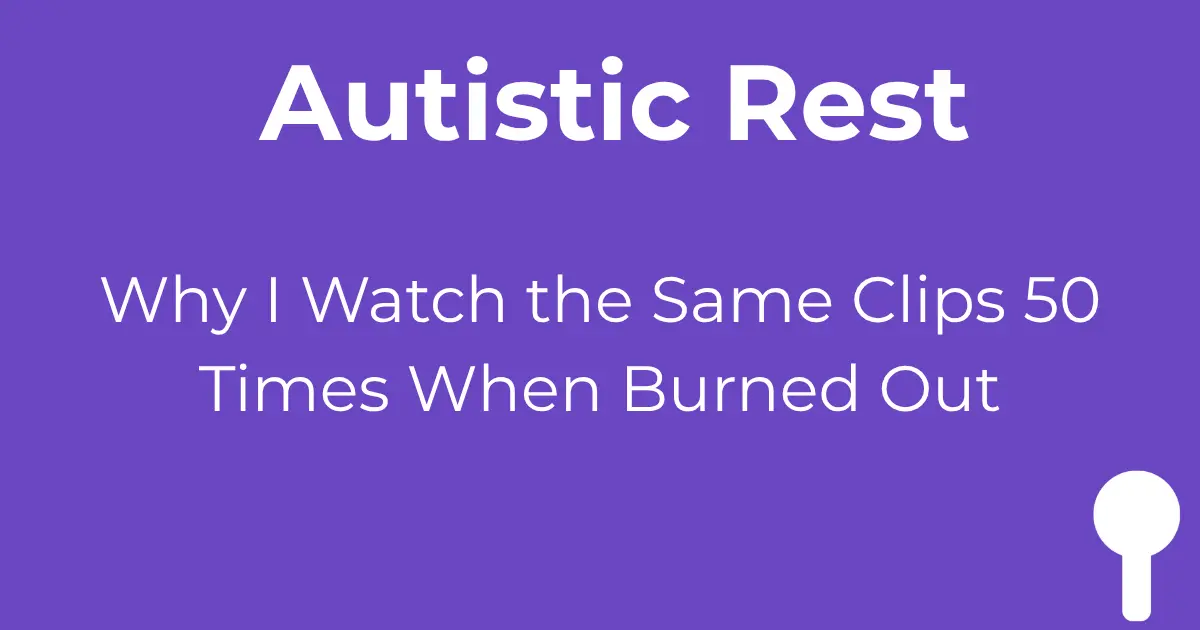
Why I Watch the Same Movie Clips Over and Over When I'm Burned Out
Puss in Boots: The Last Wish. Death vs. Puss fight scenes. I loop them 30–50 times. On very low-energy days, I lie in bed in silence for an hour instead. No bright screens. No texting friends. My brain rests because nothing is surprising.
See Full Post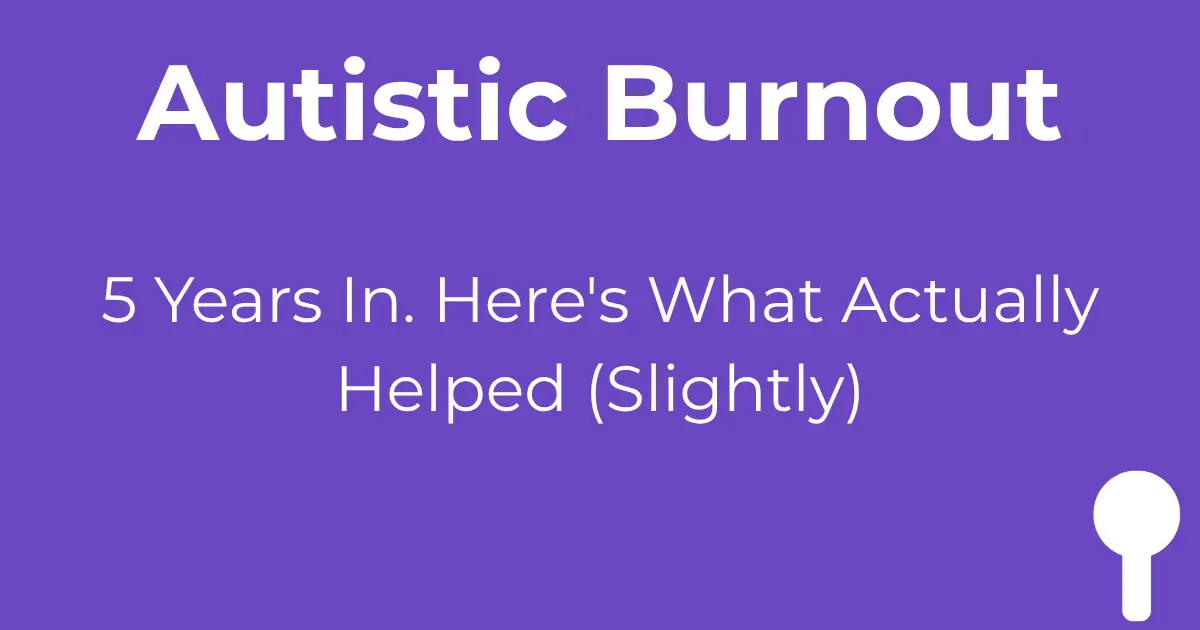
Autistic Burnout for Years: What Helped Me (Slightly)
5 years ago, I hit burnout. Mom yelling over forgotten chores. Pressure to socialize. Constant sensory overload from a house that never goes quiet. I'm still burned out now. Here's what actually helped—barely.
See Full Post
Autism Phone Anxiety: Why Texting Saves Energy
Heart rate spikes. I'm thinking what to say, what my tone should be. It's physically difficult to pick up the phone. The vibration and ringtone hit like an alarm. Phone calls drain 5-6 energy before I even answer.
See Full Post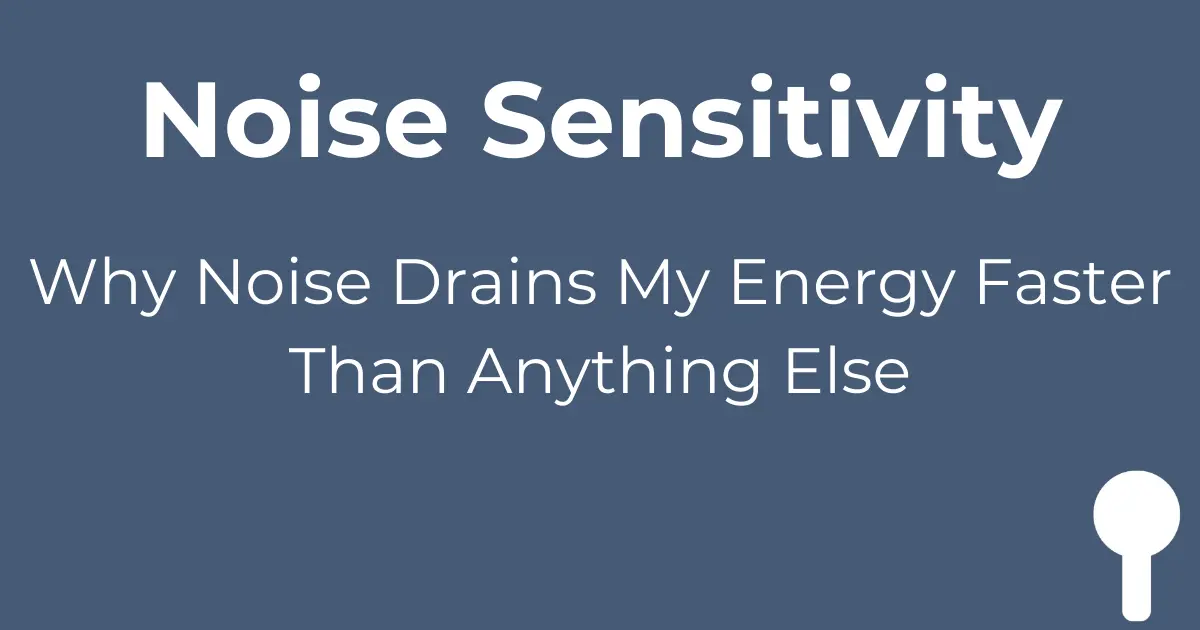
Why Noise Destroys My Energy Faster Than Anything Else
People talking loudly, alarms, totes slamming. My warehouse job zaps my energy in well under 10 hours. Noise protection isn't optional—it's survival. Here's why noise sensitivity is more than just "loud = bad".
See Full Post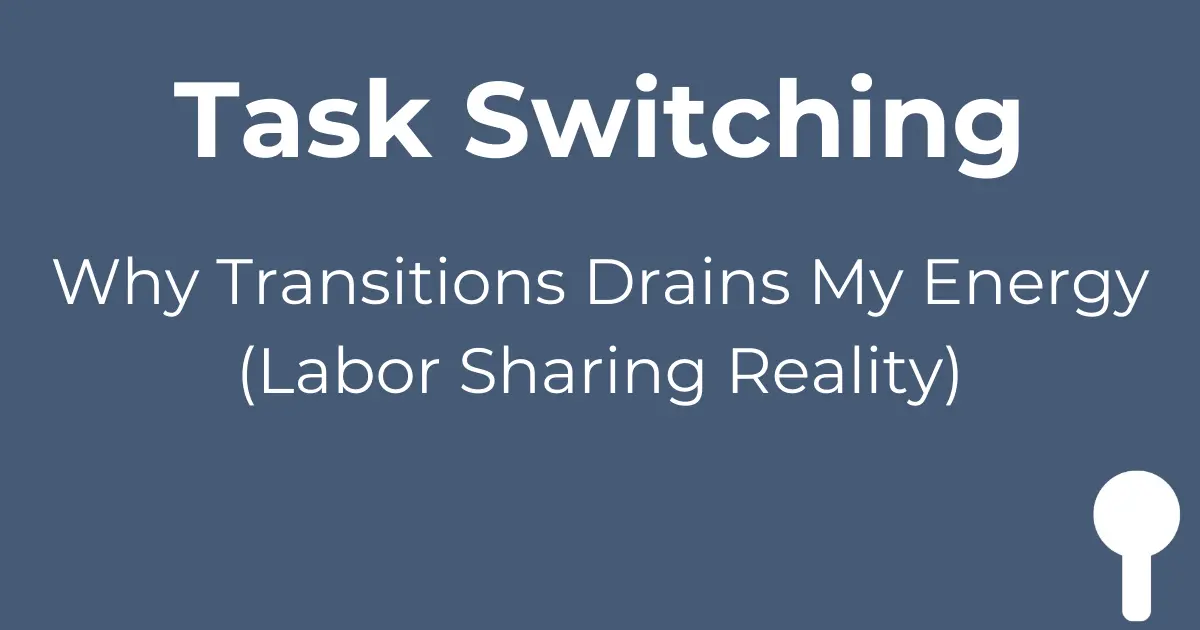
Task Switching Drains Me More Than the Tasks Themselves
What's a transition? Meditating for 30 minutes, then suddenly going downstairs to make breakfast. Why does that cost energy? Task switching abruptly forces my brain to think about where everything is and what I want to eat.
See Full PostHappy and Completely Drained at the Same Time
Can you have good mood but low energy? Absolutely. I enjoy Fortnite with friends, but the small talk exhausts me. Tracking mood tells me nothing. Tracking energy shows the drain. That's why Spoons uses a 0–10 slider, not mood labels.
See Full Post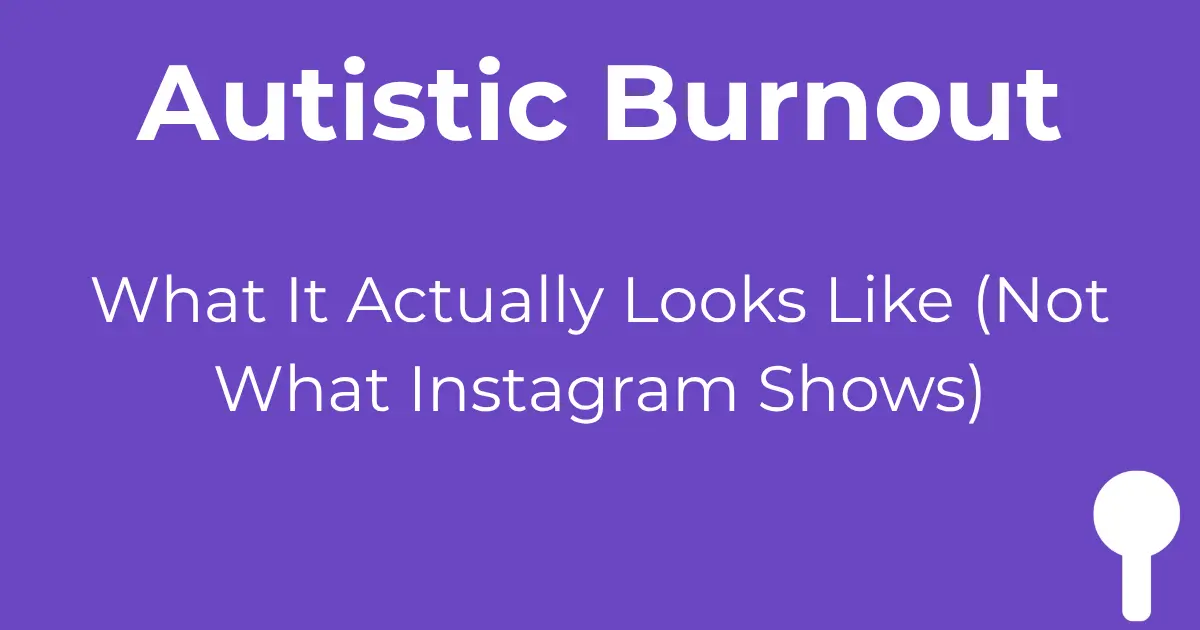
What Autistic Burnout Really Looks Like (Masking + Sensory Overload)
A lot of people assume burnout is mood-related. That we're just having an "off day" and need to "socialize more." I've been in autistic burnout for 5+ years. Skills I used to have just disappear. Rest doesn't fix it.
See Full Post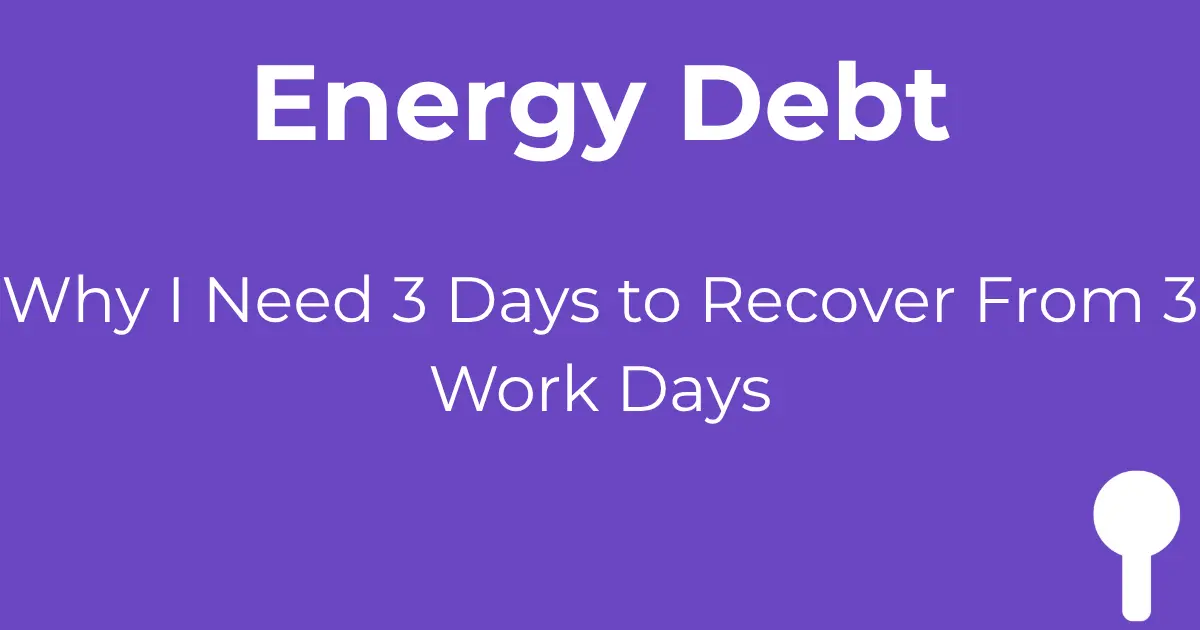
3 Warehouse Shifts. 4 Days to Recover. That's Autistic Burnout.
I work 3 warehouse shifts. Friday, Saturday, Sunday. 10 hours each. By Sunday I'm at 0 energy and need 3-4 days to recover. The difference between tired and energy debt: waking up the next day with no energy to engage in anything.
See Full Post
Why Every Autism App Ignores Adults: The Infantilization Problem
I tried three autism apps. Bright colors, automatic videos, buttons everywhere. One thought I needed spelling help. I'm a 23-year-old building my own app. 95% of autism apps are built for parents of children. None of them have anything for adults like me.
See Full Post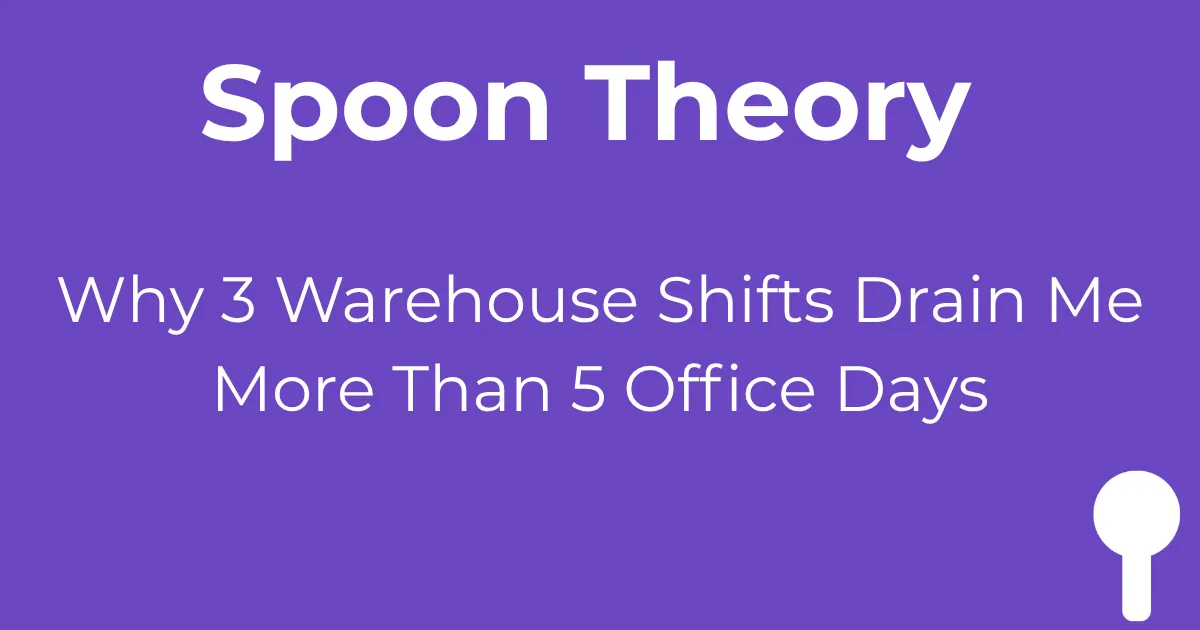
Spoon Theory: Why Autism Drains My Energy 3x Faster Than Neurotypicals
I have limited energy for daily tasks. Cleaning, laundry, cooking—they all cost me spoons. But as an autistic adult, I burn through them 2-3x faster doing the exact same things. At zero: no talking, no special interests, no stimming. All desire to do anything is gone.
See Full Post